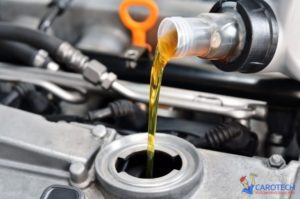 Taking care of your car is the key to making sure it runs for as long as possible. There are many things that you can do to keep your car in tip-top shape, but actually doing them is the key. Car problems can be expensive but, If you avoid taking care of your car you will end up with a check engine light and likely a high maintenance bill. That is why it is important to do things like changing your tires, get your oil changed and do any kind of car maintenance in Los Angeles, Ca that you need to do. If you think about it, it is cheaper to do the things you need to to keep your car working correctly, than to have to buy a whole new car. Getting your car’s oil changed is probably one of the most important things you can do for your vehicle. Below, we list a few reasons why.
Taking care of your car is the key to making sure it runs for as long as possible. There are many things that you can do to keep your car in tip-top shape, but actually doing them is the key. Car problems can be expensive but, If you avoid taking care of your car you will end up with a check engine light and likely a high maintenance bill. That is why it is important to do things like changing your tires, get your oil changed and do any kind of car maintenance in Los Angeles, Ca that you need to do. If you think about it, it is cheaper to do the things you need to to keep your car working correctly, than to have to buy a whole new car. Getting your car’s oil changed is probably one of the most important things you can do for your vehicle. Below, we list a few reasons why.
Benefits of an Oil Change
Gas Mileage – When your car is well taken care of, it will run better. Just like if you take care of yourself and drink water, you will run better, a car is no different.
Car Health – Changing your oil helps get the old dirt that has gathered up, to come out of your car and clean from your filter, making it run better and for longer without having any problems.
Less Harmful Emissions – Clean oil will help to put less bad emissions out into the world and keep the air from becoming even more polluted.
Give Carotech Automotive and Tires a call when you need an oil change in Los Angeles, CA, by dialing (424) 283-4303.

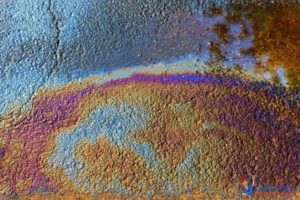 Every car contains a variety of fluids that accomplish special tasks to allow the vehicle to operate. When you notice your car leaking, you likely wonder whether to feel worried, take the car in for service, or simply ignore the issue. If you know how to identify car fluids on your own, you can save money on repairs and rest assured about your vehicle’s condition.
Every car contains a variety of fluids that accomplish special tasks to allow the vehicle to operate. When you notice your car leaking, you likely wonder whether to feel worried, take the car in for service, or simply ignore the issue. If you know how to identify car fluids on your own, you can save money on repairs and rest assured about your vehicle’s condition.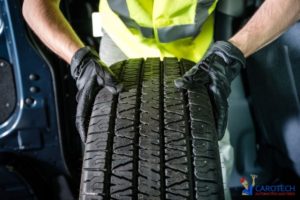 Knowing when to replace old tires can be difference between a comfortable tire change at home and an emergency on the side of the road. Thankfully, you can figure out for yourself when it’s time to spring for a new tire. Here are three simple tips to help you know when the time has come.
Knowing when to replace old tires can be difference between a comfortable tire change at home and an emergency on the side of the road. Thankfully, you can figure out for yourself when it’s time to spring for a new tire. Here are three simple tips to help you know when the time has come. 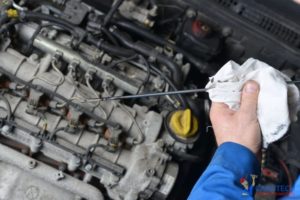 When you get a vehicle you have an obligation to take the best care of it possible while it is in your possession. This means that getting your vehicle’s oil changed comes with the territory. If you don’t know much about cars or when you need to get your oil changed, we can help you with that. Often times when you get your oil changed, the company you went to will put a sticker in your drivers’ side window in the left-hand corner that will tell you when they recommend coming back and at how many miles. This is not the exact number you should come back on, but it is pretty close usually to when you should think about heading in again. During an oil change, you will have several things done. Every place is different with what they do, but one thing’s for sure, that they will always change your filter, oil, and top off the fluids that may be getting low. If something is wrong, they will usually tell you what it is and throw in a price for reference. This is a great way to also tell if you need something more or your car will live to see another day.
When you get a vehicle you have an obligation to take the best care of it possible while it is in your possession. This means that getting your vehicle’s oil changed comes with the territory. If you don’t know much about cars or when you need to get your oil changed, we can help you with that. Often times when you get your oil changed, the company you went to will put a sticker in your drivers’ side window in the left-hand corner that will tell you when they recommend coming back and at how many miles. This is not the exact number you should come back on, but it is pretty close usually to when you should think about heading in again. During an oil change, you will have several things done. Every place is different with what they do, but one thing’s for sure, that they will always change your filter, oil, and top off the fluids that may be getting low. If something is wrong, they will usually tell you what it is and throw in a price for reference. This is a great way to also tell if you need something more or your car will live to see another day. Your auto insurance coverage can sometimes be as confusing as a new home contract, it seems. However, knowing the basics of your policy can help save you money and keep you covered in an accident.
Your auto insurance coverage can sometimes be as confusing as a new home contract, it seems. However, knowing the basics of your policy can help save you money and keep you covered in an accident. Everyone knows that cars rely on their engines, right? Now that we’ve got that part out of the way, it’s time for a hard truth. That engine needs a lot of car, and even with all the right care, your engine won’t last forever. However, if you can pay attention to the signs as your engine ages, you may be able to extend the life of that engine, or at least keep yourself from being stranded due to engine failure. Today we are going to go over some key tips you need to know about your engine’s well-being.
Everyone knows that cars rely on their engines, right? Now that we’ve got that part out of the way, it’s time for a hard truth. That engine needs a lot of car, and even with all the right care, your engine won’t last forever. However, if you can pay attention to the signs as your engine ages, you may be able to extend the life of that engine, or at least keep yourself from being stranded due to engine failure. Today we are going to go over some key tips you need to know about your engine’s well-being. Last month, we discussed the the ins and outs of changing fluids for car maintenance. However, there are several other aspects of car maintenance that it is also important to remember. Today we will go over the car maintenance basics that you need to know if you want your car to last! If you need any help with vehicle maintenance services, you can always contact our professional team here at (424) 283-4303!
Last month, we discussed the the ins and outs of changing fluids for car maintenance. However, there are several other aspects of car maintenance that it is also important to remember. Today we will go over the car maintenance basics that you need to know if you want your car to last! If you need any help with vehicle maintenance services, you can always contact our professional team here at (424) 283-4303!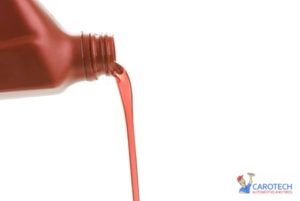 Car maintenance is very important. You depend on your car to get you to work, get your kids to school, as well as drive you across the country for your annual road trip. If your car isn’t well maintained, any of these excursions could cause a serious malfunction in the engine, transmission or other systems in your car. Proper car maintenance can prevent a serious breakdown. Carotech Automotive and Tires offers a variety of
Car maintenance is very important. You depend on your car to get you to work, get your kids to school, as well as drive you across the country for your annual road trip. If your car isn’t well maintained, any of these excursions could cause a serious malfunction in the engine, transmission or other systems in your car. Proper car maintenance can prevent a serious breakdown. Carotech Automotive and Tires offers a variety of 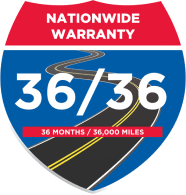
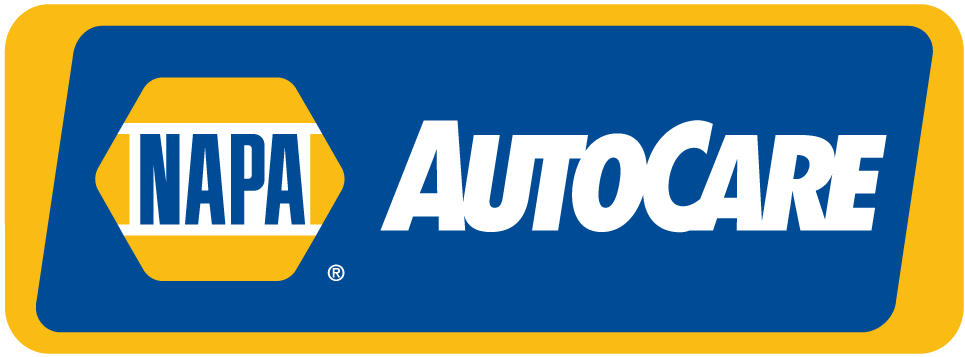


Recent Comments